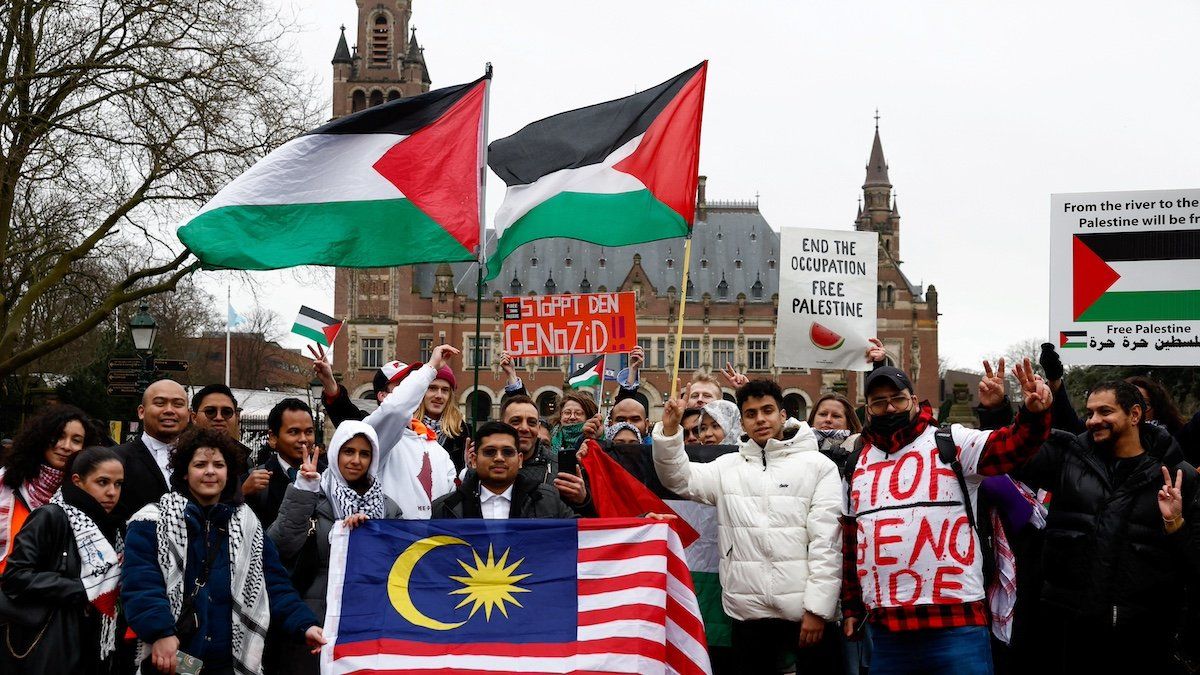Palestinian Authority Foreign Affairs Minister Riyad al-Maliki on Monday delivered an opening statement before the International Court of Justice at the Hague in a case about Israel’s occupation of Palestinian Territories since 1967. The UN-backed court will hear from more than 50 countries and three multinational organizations – the largest case in the ICJ’s history – but a decision could take months, and it would be non-binding.
This is separate from South Africa’s case alleging Israel is committing genocide in Gaza.
Quick history: In the aftermath of Israel’s war of independence in 1948, Egypt occupied Gaza while the West Bank and East Jerusalem fell under Jordanian control. However, when Israel launched preemptive strikes against an imminent Egyptian invasion in 1967, it responded to Jordanian shelling by pushing Amman’s forces back across the Jordan River. Israel has occupied the West Bank and East Jerusalem ever since, while Israeli settlers have inhabited large portions of each territory (see our explainer here). Israel also captured Gaza and the Sinai desert from Egypt but withdrew all troops and settlers first from Sinai by 1982 and then from Gaza in 2005.
The arguments? Palestinians argue that the occupation undermines their self-determination, that Israeli policy amounts to apartheid, and that the occupation is illegal. Tuesday’s session will be opened by South Africa, a strong Palestinian advocate, followed by delegates from nine other countries including Chile, which has the largest Palestinian population outside the Middle East.
Israel said in a written argument that the question before the court is prejudiced and an opinion would be “harmful” to a resolution, but it will not directly participate in the proceedings. Its strongest ally, the United States, is slated to speak on Wednesday.
Will anything come of it? The short answer is no. Israel will be free to ignore any ICJ decision. That said, the exercise is already illustrating Israel’s near-total isolation on the global stage – and we’re watching for how the Biden administration threads a tricky needle of public opinion at home. The president is facing opposition from the left wing of his own party as well as Muslim voters in the key swing state of Michigan for what they see as an overly deferential position toward Israel’s war in Gaza.

















